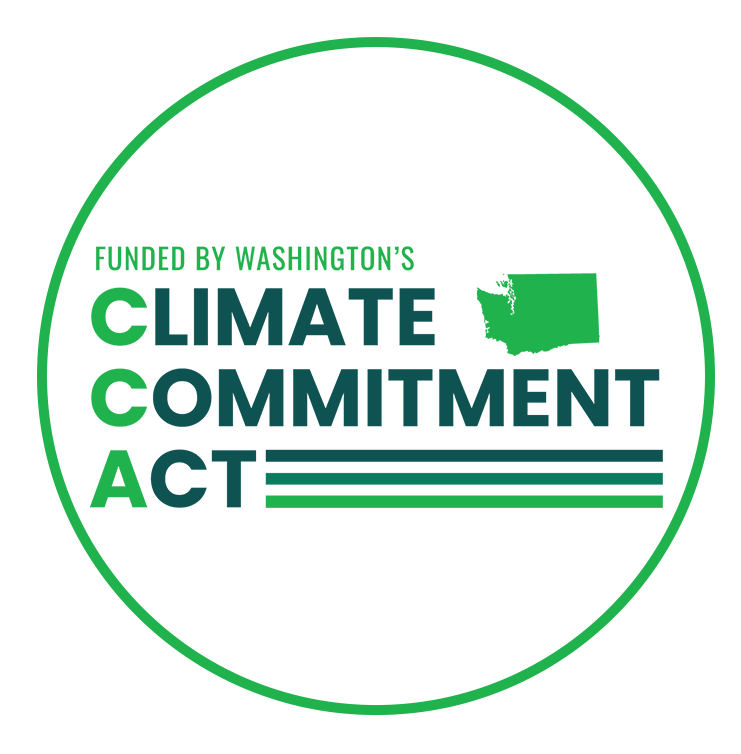Carbon Tax Increases Costs for Food Producers, Solar Panel Company and Manufacturers
There has been a great deal of discussion about the challenges the United States faces in keeping manufacturing jobs in Washington state. New proposals to raise carbon taxes in Washington state would make it more difficult to keep manufacturing here, including, ironically, a solar panel manufacturer.
There are now three carbon tax proposals before the legislature. In addition to the Governor’s proposal of $25 per metric ton (MT) of CO2, there is a proposal by Senator Hobbs for a $15/MT CO2 and a proposal by Rep. Fitzgibbon and Sen. Carlyle for $15/MT CO2.
Previously, we calculated the cost of the Governor’s proposal for average families in Washington – about $400 per household.
Businesses will also see a significant tax increase if any of these proposals are adopted. Using the most recent carbon emissions data from the Department of Ecology, here are some estimated costs for selected businesses in Washington.
To be clear, these are estimates because each plan has some exemptions or allows companies to apply for relief from the tax, but those exemptions are vague and difficult or impossible to predict.
First, the most ironic of the companies that would be hit by the taxes is REC Silicon in Moses Lake which manufactures parts for solar panels. Their 2014 emissions were 144,678 MT of CO2. That would add $2.17 million in annual taxes with a $15/MT tax and $3.62 million tax under the Governor’s $25/MT proposal.
Universities would also be impacted, spending up to $2 million per year.
Name | 2014 CO2 Emissions | $25/Ton | $15/Ton |
University of Washington Seattle Campus | 82,134 | $2,053,350 | $1,232,010 |
Washington State University - Pullman | 59,384 | $1,484,600 | $890,760 |
Food production is another area that would see a significant cost. The jobs associated with these industries are welcome and having these companies here supports farmers, ranchers and fruit growers by creating an infrastructure to support them.
Name | 2014 CO2 Emissions | $25/Ton | $15/Ton |
ConAgra Foods Lamb Weston - Connell | 38,810 | $970,250 | $582,150 |
ConAgra Foods Lamb Weston - Pasco | 47,241 | $1,181,025 | $708,615 |
ConAgra Foods Lamb Weston - Quincy | 38,324 | $958,100 | $574,860 |
ConAgra Foods Lamb Weston - Richland | 34,551 | $863,775 | $518,265 |
JR Simplot - Moses Lake | 31,404 | $785,100 | $471,060 |
JR Simplot – Othello | 87,301 | $2,182,525 | $1,309,515 |
McCain Foods – Othello | 95,228 | $2,380,700 | $1,428,420 |
Basic American Foods - Moses Lake | 28,982 | $724,550 | $434,730 |
Tyson Fresh Meats, Inc. - Wallula | 77,161 | $1,929,025 | $1,157,415 |
Manufacturing would also be hit. Here are the numbers for manufacturers across the state. At a time when there is concern about worldwide competition for manufacturing, this tax would make it more difficult to keep these jobs here.
Name | 2014 CO2 Emissions | $25/Ton | $15/Ton |
Agrium Kennewick Fertilizer Operations | 132,249 | $3,306,225 | $1,983,735 |
Air Liquide Hydrogen Plant - Anacortes | 64,110 | $1,602,750 | $961,650 |
Alcoa Inc. - Wenatchee Works - Malaga | 354,692 | $8,867,300 | $5,320,380 |
Alcoa Intalco Works - Ferndale | 1,326,684 | $33,167,100 | $19,900,260 |
Ash Grove Cement Company - Seattle | 522,982 | $13,074,550 | $7,844,730 |
Cardinal FG Company - Winlock | 103,267 | $2,581,675 | $1,549,005 |
Emerald Kalama Chemical, LLC - Kalama | 22,875 | $571,875 | $343,125 |
Graymont Western US. Inc. - Tacoma | 105,825 | $2,645,625 | $1,587,375 |
Kaiser Aluminum Washington, LLC - Spokane Valley | 114,924 | $2,873,100 | $1,723,860 |
Linde Gas North America LLC, Anacortes Hydrogen Plant | 53,686 | $1,342,150 | $805,290 |
Nucor Steel Seattle, Inc, - Seattle | 166,109 | $4,152,725 | $2,491,635 |
Solvay Chemicals, Inc. - Longview | 46,953 | $1,173,825 | $704,295 |
Many other companies will be hit by these costs, most notably refiners, especially in Anacortes. These costs will be paid in two ways. Research demonstrates that all (or virtually all) of the additional cost to refiners is passed on to drivers. If, however, oil can be refined elsewhere, they may move supply there to keep costs low.
It is not always possible to pass all the costs along, however. Depending on how price sensitive customers are to costs, businesses may not be able to pass all costs along. This makes those companies less financially stable, making it more likely they will leave the state or simply close their doors.
As noted above, the sponsors of these taxes will claim there are ways to mitigate the risk to companies that might leave, but those are political calls and since the goal is to raise billions in new taxes, there is only so much they can, or will, do to reduce the burden.





